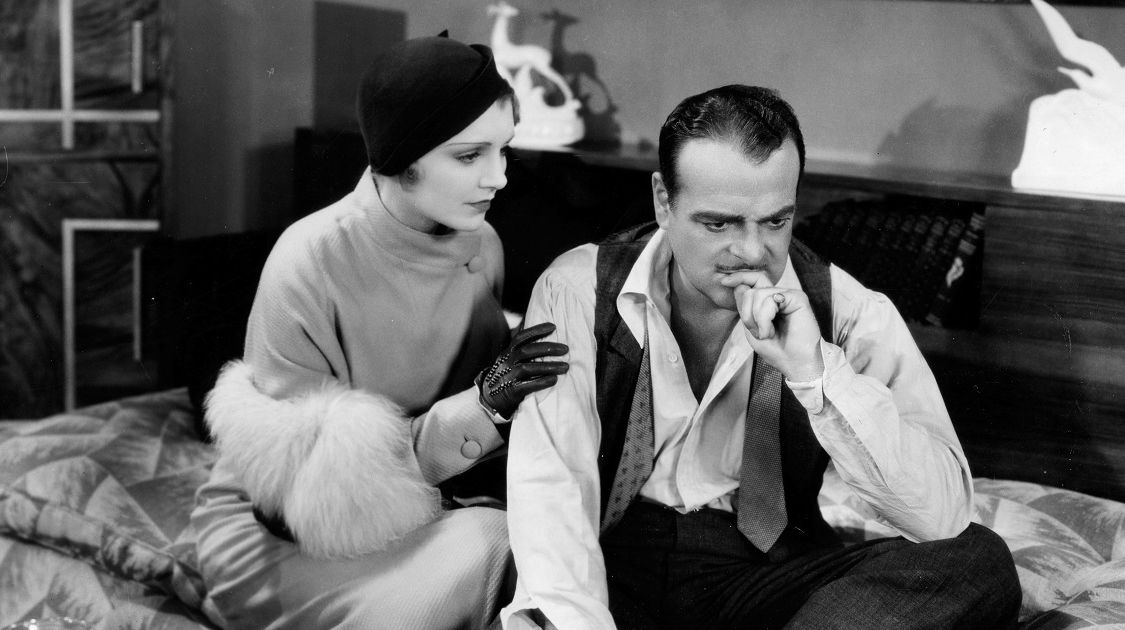
If you think you know your pre-Codes, and haven’t seen False Faces, it’s time to go back to school to watch one of the outrageous pre-Codes of them all, even more amazing because most of the events in this film really happened.
Let’s pick up the story February 4, 1928, with the publication of this article in the prestigious Journal of the American Medical Association magazine. Usually polite to a fault, JAMA threw away its normal sense of decorum and went with the bold headline:
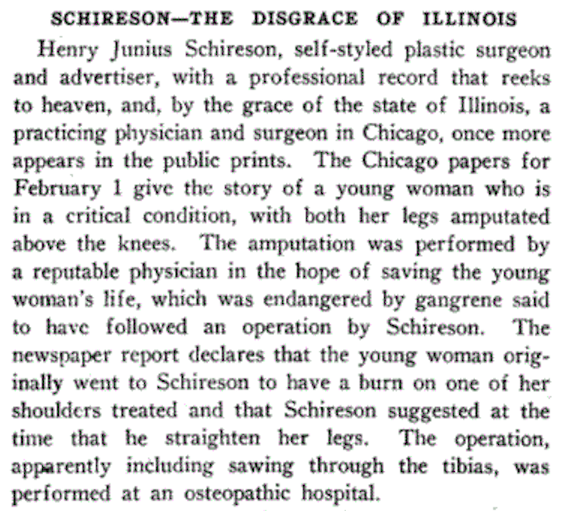
The article goes on to describe at length Schireson’s misdeeds. I say “at length” in a literal sense, because when chased out of one town, Schireson wasted little time in traveling across state lines and setting up shop in a new location, carrying a suitcase full of false credentials. And when he was “outed” in that town, it was merely time to move on, and move on again. His reputation eventually grew to such a proportion he was at one point called “The King of Quacks,” a label he seemed to enjoy, as it apparently validated his importance. I’m including a portion of what he did below—it just keeps going and going…
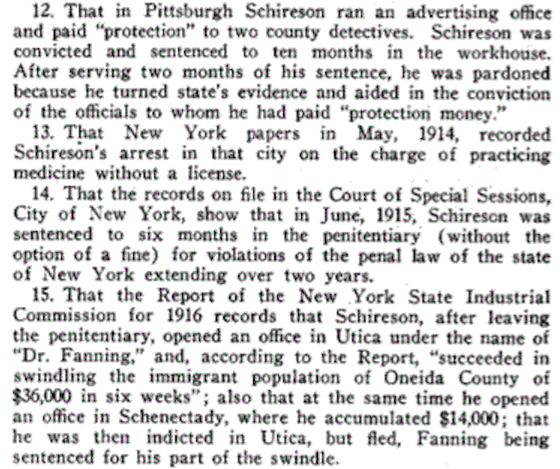
The movie False Faces recounts the strange and awful career of Henry Schireson. When I say the film is about Schireson, it’s important to add that the man was still alive in 1932, so while the filmmakers changed names and geography, the central details of the film match closely to what really happened. Here is a newspaper article describing his many misdeeds-

In False Faces, Schireson is renamed Dr. Silas Brenton, and played in full-tilt sociopathic splendor by Lowell Sherman, who also directed the film. The story starts with Dr. Brenton treating a poor family in the Bronx, however any ideas we have about a young Doctor Kildare healing the poor quickly disappear as Brenton is caught asking for money to insure a good outcome for an operation. Chased out of town, he reinvents himself as a surgeon in Chicago. What he lacks in training and skills, Brenton makes up for with flim-flam, building a practice by lying, cajoling and deceit.
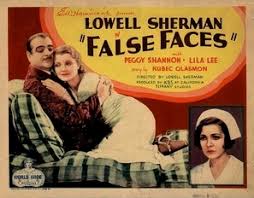 His blatant lying and conceit presents itself in all areas of his life, Once in Chicago, Brenton begins two-timing his New York girlfriend by going out with his Chicago receptionist, which becomes a three-timing operation when he begins an affair with a wealthy socialite who is the daughter of one his patients. (Item list: Breton wears not one pinky ring, but two—one on each hand—this means he’s real trouble!) If that’s not enough, Brenton also gets involved in the social media of the day, radio and magazines, promoting his “brand.”
His blatant lying and conceit presents itself in all areas of his life, Once in Chicago, Brenton begins two-timing his New York girlfriend by going out with his Chicago receptionist, which becomes a three-timing operation when he begins an affair with a wealthy socialite who is the daughter of one his patients. (Item list: Breton wears not one pinky ring, but two—one on each hand—this means he’s real trouble!) If that’s not enough, Brenton also gets involved in the social media of the day, radio and magazines, promoting his “brand.”
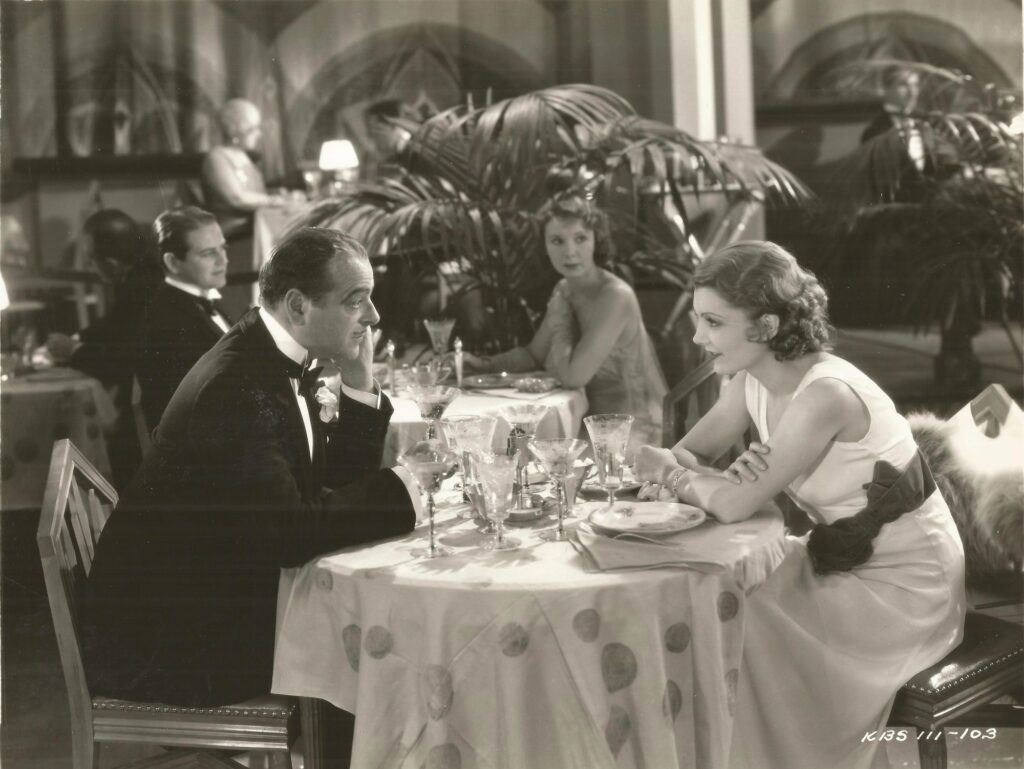 Selling himself as a cosmetic surgeon, and specializing in nose jobs and other facial and body surgery, Brenton quickly climbs the social ladder by giving quack treatments to rich clients with lots of money and too much time on their hands. Unaware (perhaps “indifferent” is a better word) to the visibility of his high-profile surgical failures, Brenton at last is guilty of an act so negligent and incompetent, even he can’t talk his way out. When one of his patients develops gangrene and needs her legs amputated, Brenton is taken to court for his gross malpractice—his dramatic trial, and the public’s angry reaction to the verdict leads to a rousing conclusion to the film.
Selling himself as a cosmetic surgeon, and specializing in nose jobs and other facial and body surgery, Brenton quickly climbs the social ladder by giving quack treatments to rich clients with lots of money and too much time on their hands. Unaware (perhaps “indifferent” is a better word) to the visibility of his high-profile surgical failures, Brenton at last is guilty of an act so negligent and incompetent, even he can’t talk his way out. When one of his patients develops gangrene and needs her legs amputated, Brenton is taken to court for his gross malpractice—his dramatic trial, and the public’s angry reaction to the verdict leads to a rousing conclusion to the film.
Dr. Brenton was played by Lowell Sherman, a role that Sherman was born to play. In Sherman’s expert hands, Dr. Brenton is number 11 on the 1-10 “sleaze scale,” an especially dangerous kind of sleaze because his unctuousness is so well disguised. And Sherman gives Brenton the one essential requirement one has to have to be a great con man—the supreme, total, and absolute confidence of a total narcissist, a man with no goal except to do everything possible to aggrandize himself.
But what is the difference between a confidence man we all admire, such as The Music Man’s Harold Hill, and someone like Dr. Brenton? Is it a difference of degree? Is it intent? And as we follow Brenton persistently finding ways to con everyone around him, wasn’t his amazing persistence and success setting him up to becoming a conman folk hero, like Harold Hill?
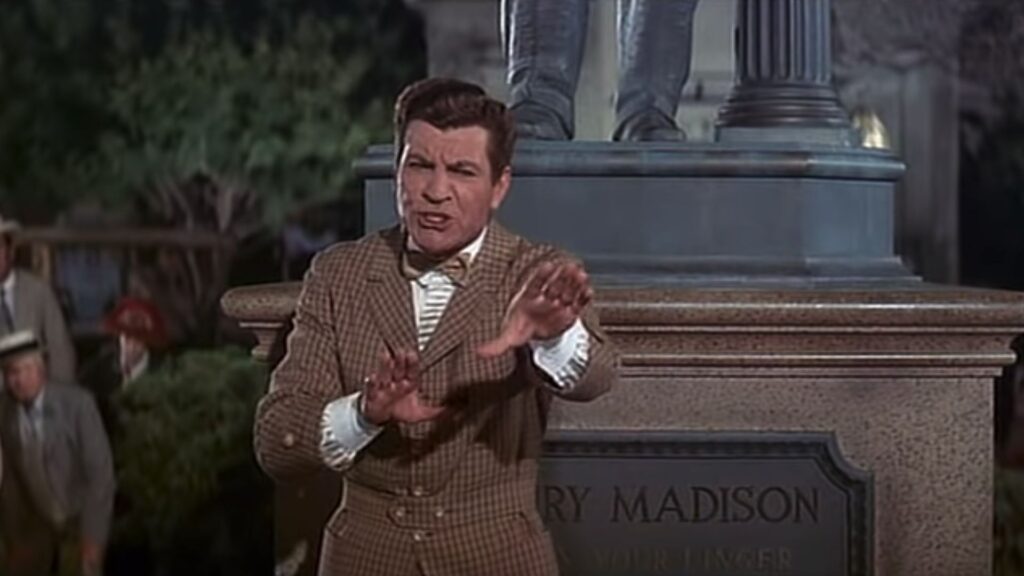
But this was no fairytale of early century Mid-America. Watching Lowell Sherman, in his role of Brenton, effortlessly and casually wrecking people’s lives, watching him lie, and cheat, watching his ever growing need for public media attention in radio broadcasting and magazines … this was the point in the movie where I sat back and thought: “My god, this really all happened.”
The section of the film that describes his many whacko business endeavors pulls you away from the more personal drama as he recklessly attempts more and more dangerous surgery, finally with disastrous results. In choosing to show his misbegotten activities outside the medical field, the film loses some flow and tempo, but overall False Faces becomes a more interesting movie, as it adds historical perspective and context to the story—Brenton isn’t just a huckster doctor, he’s a megalomaniac whose reach far exceeds his grasp. This is the part of the film where the story veers toward the events taking place in Elia Kazan’s Face in the Crowd. A monster of a con man has been created, now how far can he go, and who will stop him?
But unlike Kazan’s film, the filmmakers don’t want us to have any sympathy to Brenton; they want us to HATE him. When at end of the film, a former patient confronts Brenton and says: “Give me back my legs!” any kind of myth Brenton is a “good conman” is obliterated—this man is evil and he is doing evil things.
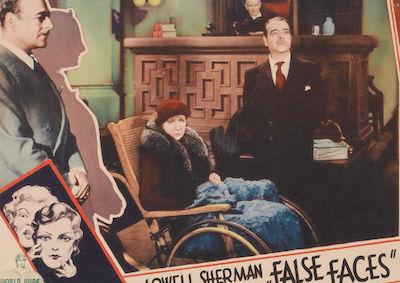
Which takes us back to the present. In the U.S. we have created our version of Dr. Brenton but one taken to an impossible extreme, a conman so successful he has risen to the presidency. We are living in our own version of False Faces played not in a hospital operation room, but on the world stage.
And on November 3rd, when someone finally cries, “Where are my legs?” … will there be anyone left to hear her?




6 thoughts on “Oh My God, It Really Happened: False Faces (1932)”
Pingback: False Faces (1932) Review, with Lowell Sherman – Pre-Code.Com
Loved this movie, loved this page , until the end. No need to preach politics.
Hi Doreen. You seem to forget this is my website; I can do anything I want. I wrote about a con man who caused great harm to society, then explained how topical it was because the same thing was happening on a much larger scale. But I tell you what: If Biden wins, and further investigation shows that Trump was innocent of all the felonies and treasonous activity that the Democrats are accusing him of, I’ll edit this article and apologize. I’ll say I made a bad mistake and I’m sorry. And if it turns out he DID do all these things (which would illustrate what an amazing con man he is, which was the point of me talking about him) you can have the opportunity to do the same. Deal?
Thanks for all the research, this was a good read, I found it after watching the film.
Thank you, Lisa, I appreciate your comments.
very interesting, thank you Loki. will be on the lookout for this one…don’t recall seeing the title on TCM’s schedule, ever. Sherman is an intriguing figure, we lost him too soon.